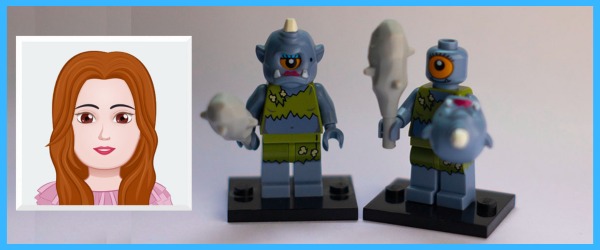Germs are lurking — lurking, crawling and squirming — all over the workplace. Offices are literal hotbeds for bacteria, viruses, mold, fungus and god only knows what else. The Centers for Disease Control estimates up to 80 percent of all infections are spread by touching contaminated surfaces — and the contaminated surfaces definitely include others’ contaminated hands.
But you work from home, on cam and solo all day every day, so you’re in the clear, right? Wrong!
Though you may limit your chance of exposure via working from home, Murphy’s law says colds and the flu will eventually find a way to get us all. Coughing, sneezing, fever, hacking, and rasping can only mean one thing: Even from within the safety of your webcam cocoon, your time has come. So, cold or flu? How do you know which one you have, and how should they be treated?
Do you have a cold, or do you have the flu?
Colds and flu are actually quite similar. Both are viral, and both respond to the age-old remedies: over-the-counter pain relief such as acetaminophen or NSAIDs, plenty of fluids and a lot of rest.
Rest? Who has time for rest? Your cam schedule keeps you busy day and night, and January trade shows are right around the corner. You can’t afford to sit back and do nothing.
True enough, but how productive (and appealing) are you with a runny/stuffy/chapped nose, itchy eyes, persistent cough, aches and pains, intermittent sneezing and sore throat? All the makeup and lighting tricks in the world won’t help. Take a break, go to bed and put your health first.
Stress less!
Did you know the stress from your long workdays and nights can make you vulnerable to colds and flu? That’s right: Stress can make you sick. Couple it with lack of self-care, and you have a recipe for disaster. In fact, a 2012 study published in the Proceedings of the National Academy of Sciences noted that work-related chronic stress makes people likelier to develop a cold and slower to get rid of it — all thanks to an overload of cortisol in your system that allows inflammation to stay on and keep those cold symptoms going.
Going back to working from home, here’s a fact: No matter how much you scrape and scrub, your home is not germ-free. Certainly you stand a better chance of staying healthy than someone constantly exposed to symptoms in an office or retail environment. Still, it’s almost impossible to live in a cocoon, so it’s always best to take precautions. Clean surfaces thoroughly with disinfectants. According to WebMD, it’s best to use wipes and allow the disinfectant to dry, rather than use paper towels or sponges. Don’t forget electronics: your phone, television remote, computer keyboard and tablet all can harbor germs, and you touch these things almost every waking minute of every day.
Do you need a professional opinion?
If you are a healthy individual and begin to show signs of a cold or flu, there’s no need to rush to the doctor. There is little to be done in a physician’s office, other than a standard exam to tell you what you already know. Instead, stay home, take the aforementioned pain relievers, get some rest and let the illness run its course. And, listen to what Mom always suggested: soup, and plenty of it.
If you are coughing, a suppressant may be best used at night. Uncomfortable as it can be, you might be better off letting your body rid itself of the garbage by day. Seek relief with fluids and cough drops. Surely you know this, but pay careful attention to the dosing instructions on all medications, and don’t combine or double-dose with multiple products. Read the labels carefully, as some medications cause drowsiness. It’s a good idea to take single-symptom formulas, rather than multi-symptom products, which may end up treating symptoms you don’t have and/or causing an adverse reaction when added to other pain relievers.
Here’s a biggie: Do you need a flu shot? Opinions vary. One thing is certain though: seniors, young children and anyone in a high-risk situation due to underlying medical problems should be vaccinated. If you live with a high-risk person, such as an elderly parent, both of you should get flu shots to protect yourselves. This, too, no longer requires scheduling an appointment with a physician, as many pharmacies now offer the shots at a low price.
An ounce of prevention can go a long way.
Although there are no guaranteed ways to avoid catching a cold or flu, there are preventive measures you can take. It may be easier said than done, but if you are in a setting where you see possible symptoms, keep away. Don’t shake hands with, or sit next to, anyone who appears to have symptoms. Stay clear of someone who is coughing. Wash your hands often. This is the best prevention, because cold and flu viruses survive on surfaces for several hours. If someone with the flu coughs into their hand and then touches a doorknob, then you open that door and rub your nose, you just transmitted the virus to yourself.
Caveat: Be mindful of persistent symptoms. WebMD advises contacting a physician if a fever lasts for more than five days or a cough/shortness of breath continues for two weeks. Chest pain, inability to keep fluids down, underlying medical problems or other prolonged problems are also indicators you need medical attention.
NSAID stands for non-steroidal anti-inflammatory drugs. Things like aspirin, ibuprofen and naproxen are all types of NSAIDs.
—
Jenna Andre is a total gearhead who also appreciates the simpler things in life. Email her at Jenna.Andre@ynotcam.com.










